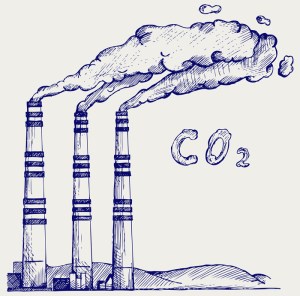Ever so suddenly, we have found ourselves adrift in a sea of information. Our common sense is drenched in a deluge of vague statistics, poorly supported ‘facts’, and papers so riddled with complicated and biased jargon that they add nothing to the discussion but pseudo-credibility. Our generation, in particular, is drowning in all this (mis)information, with only one island of certainty, science. Yet what happens when the reliability of science is twisted and contorted so as to fit the hidden agenda of different political groups?
From pseudo-scientific language to falsely applied statistics, political agents (ab)use the gray area of science’s normative dimensions so as to negate the very reality of foreign actors, other interest groups, as well as the average citizen.
The (mis)use of science allows for biased opinions to be viewed as factual and even absolute. What we deem scientific, and what we pursue within the scientific discipline, is influenced by vested interests, as well as political ideologies. Whether this effect manifests as grants, public support, or national interest, scientific facts are framed and attached to certain implications and interpretations. In other words, science does not exist within a vacuum—-just like any other human endeavour— science mends, bends, and depends on human ideologies, beliefs and politics; as a human-made discipline, science suffers from human-made notions.
However, what makes science so de facto is precisely that it is concerned solely with the ‘how’ of our reality. The ‘what’ and ‘why’ used to be the domain of philosophy and social studies but here, too, these facets are abandoned, only to be adopted by corporations, false politicians, and sensationalized journals. This substitution for the objective with the subjective gives and takes credibility irrespective of intellectual merit. Reality itself sinks into unreliable relativism.
To make matters worse, information that mystifies and distorts our understanding and perception of reality is reported to us daily. Journalistic credibility struggles against the onslaught of platforms and editors that pander to sensationalism. The temperate conversation of complex nuances simply does not sell as well as inflammatory and shocking headlines. Negative emotions produce more clout. As such, it is easier to spark attachment and action through collective outrage rather than collective understanding.
The scientific discipline is dragged in to this sensationalist arena so as to factualize harmful opinions against marginalized and foreign groups. In doing so, public actors pathologize the reality, and politically de-platform otherwise genuine and valid human experiences. In other words, different interpretations of reality are medicalized and dismissed as pathological for they fail to conform to neoliberal health standards— or whatever political power that defines these standards. Succinctly, the scientization of ideological realities within politics occludes the differential nature of perception and experience. Again, science lacks normative dimension from which ethical, political, or ideological interpretations can be extracted from. Knowing the “how” is never enough, there needs to be a prescription of what this entails and why such is relevant.
That being said, the objectification of the subjective should be viewed for what it is: not the scientific endeavour to explain and understand the world but instead, a political tool to mask imperialist sentiments. Without the support of critical thought and philosophy within science it seems that the immutable voice of science will serve to justify hierarchizing experience only granting certain realities validity.















